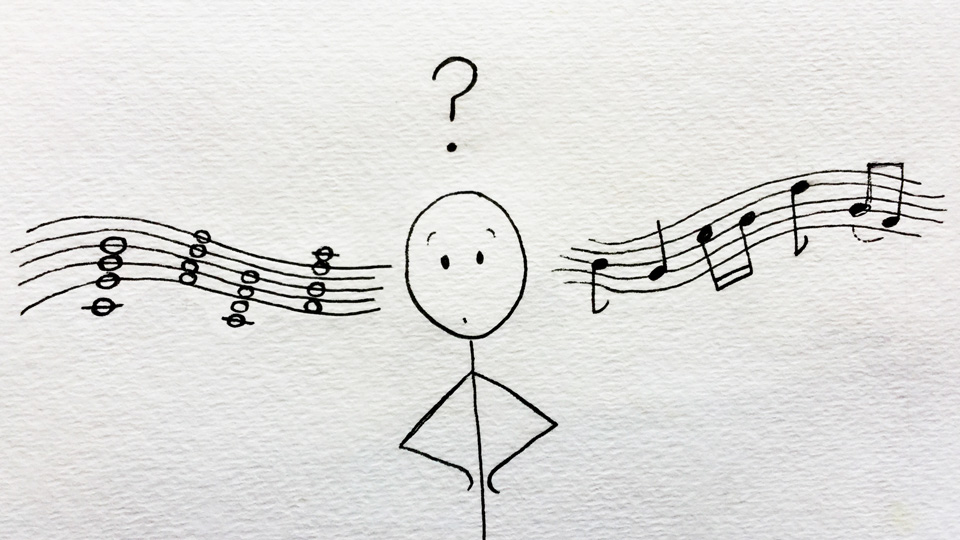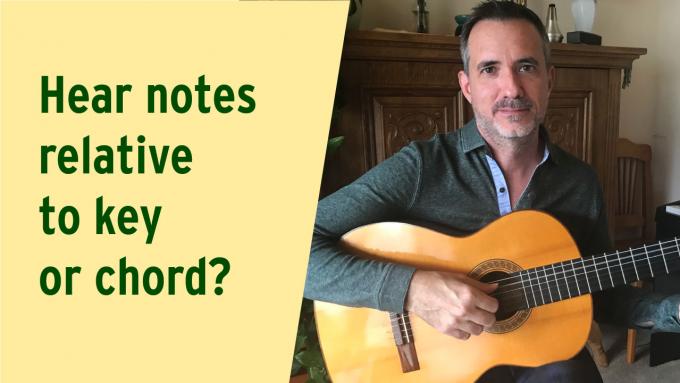Hi David,
I'm not trying to get too far ahead of myself, but in working with the harmonic environments, I'm finding it both fun and useful to throw in a chord now and then that defines the environment. So for example if I am in the first harmonic environment, I might play a major 7th chord in one or two inversions right around the same area where I'm improvising.
OK, well and good. All makes sense in the first harmonic environment because the chord tones are the same as the tonal numbers in the key of the music. (For example note 3 of the chord is also note 3 of the key.) But when I get away from the first harmonic environment and work on, say, the 6th harmonic environment, it gets more complicated. Now the chord is the minor 7th and the numbers no longer correspond to the tonal numbers in the key. (For example, now the flatted 3rd of the chord is actually note 1 of the key.)
So here's my question. When I'm concentrating on the way the notes relate to each other in a chord, should I still be thinking in tonal numbers relative to the key (e.g. "note 1" in my very last example above)? Or should I mentally name the notes relative to the chord (e.g. calling this note the "flatted 3rd" of the chord)?
What's your opinion? And, really, I'm not stressing over this at all. I just enjoy the theoretical part as well as the sound part. That's also fun for me.
Larry
David's response:
Hi Larry,
I think you already have the answer because you have described the question so clearly. Both visions are part of one single reality. When you focus on the absolute position of each note relative to your tonal map (like when you called it "note 1" in your example above), then you are appreciating one aspect of this note. On the other hand when you think of this note as the flatted 3rd of your minor seventh chord, then you are appreciating another aspect of this note. In one case you are seeing very clearly where the note is located in the overall key of the music. And in the other case you are seeing very clearly the role of this note in the chord of the moment.
It's no different from using relative versus absolute coordinates for anything else in life. For example, you might describe your house as being at 125 Maple Street or you might describe it as being 3 doors down from my house. Both descriptions are correct. But more importantly, if your goal is to really master this musical terrain so that you can improvise and express yourself with confidence and ease, then you don't want to settle for being dependent on one of these interpretations. You want to really master BOTH points of view and also appreciate the relationships between them. You want to understand the absolute position of every note in this musical neighborhood, and you also want to understand very deeply every conceivable relationship between them.
And just as you said, the most important thing of all is to embrace the entire project as a joyful one. It's really about appreciating the sounds and enjoying making these personal discoveries of all the different ways that the notes fit together and relate to one another.
If you want to bring all of this into a sharper focus in your mind, then you should take a moment to contemplate two drawings side by side. One drawing would be the 6th harmonic environment the way we imagine it in Exercise 2, Seven Worlds:

And the other drawing would be the modal view that I describe in the section "Melody, Revisited" of IFR Exercise 5:

Just take your time and really convince yourself that these two drawings coincide, and learn to see them both simultaneously as you improvise with these sounds. In other words, try to learn all of the lessons that these two drawings together can teach you. Did you know that moving up from note 6 to note 1 on your tonal map is the exact same thing as moving up from note 1 to note b3 in a minor seventh chord? These are the two points of view that you want to integrate in your mind.
Happy exploring,
David

